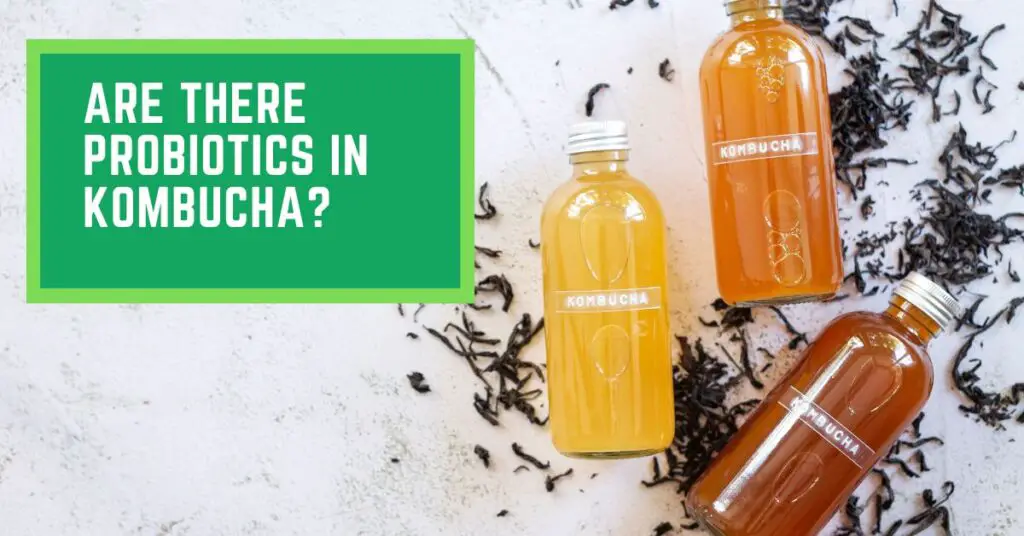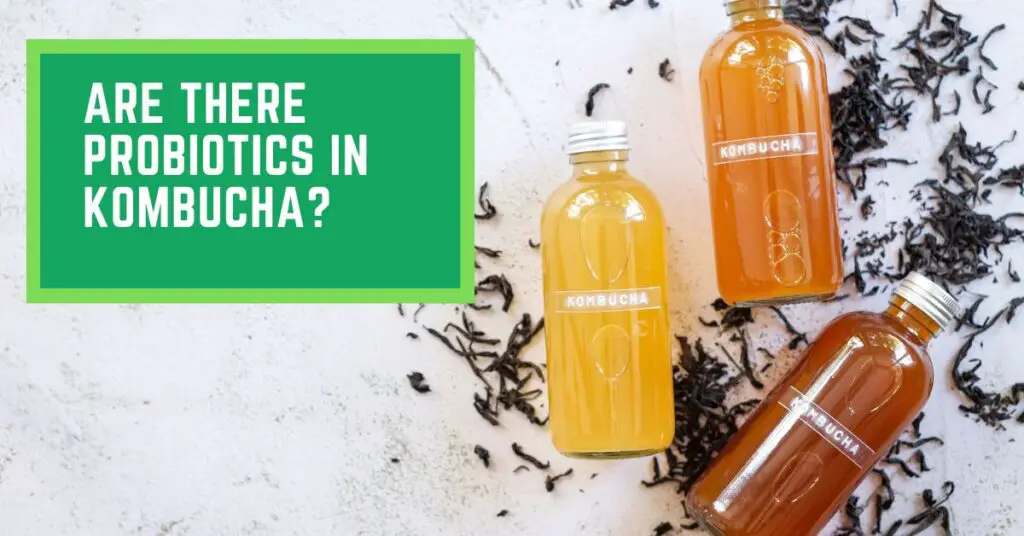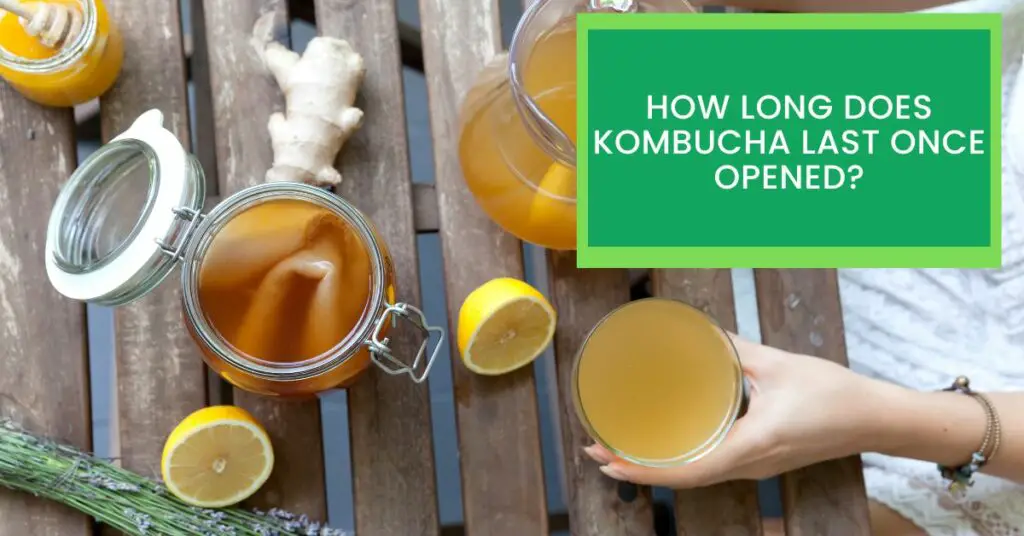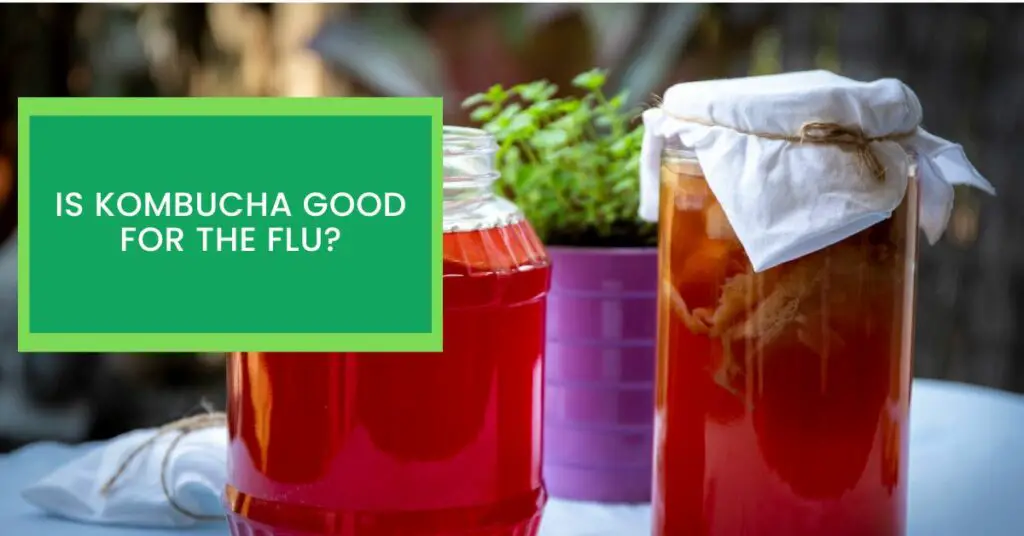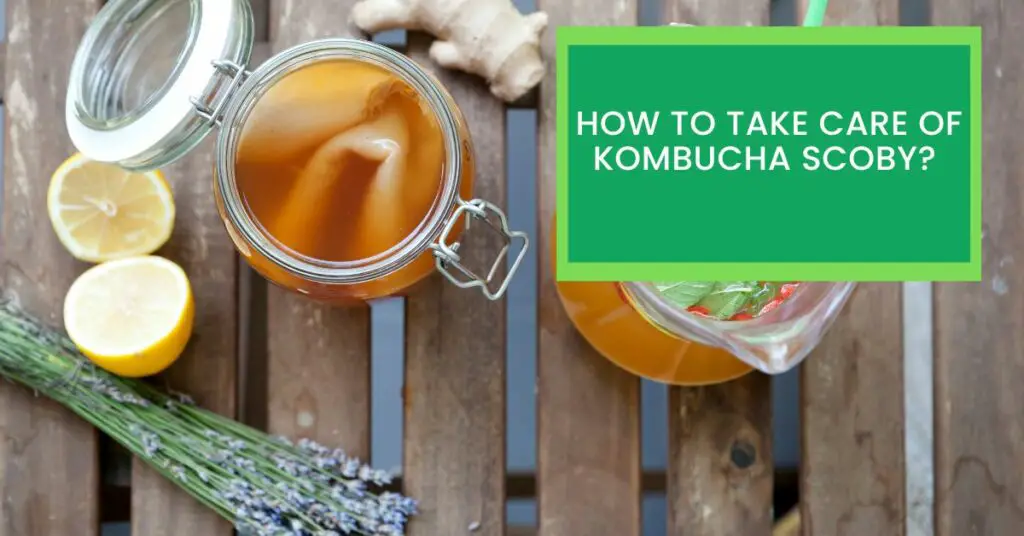Kombucha is a fermented tea that has been consumed for centuries, dating back to ancient China.
The fermentation process creates beneficial bacteria and yeasts, which are thought to offer health benefits when consumed.
It’s a common fact that kombucha contains probiotics, which are live microorganisms that can provide health benefits when consumed.
In this article, we’ll take a closer look at the probiotic content of kombucha and whether or not it’s a good source of these beneficial microbes.
What is Kombucha?
As discussed above, kombucha is a fermented tea that has been enjoyed for hundreds of years. It is made by adding a colony of bacteria and yeast to sweetened tea and allowing it to ferment.
Kombucha has a slightly tart, slightly sweet flavour and can be enjoyed on its own or used as a mixer in cocktails or other drinks.
Is Kombucha Good For You?
Kombucha is a fermented beverage made from black tea and sugar. It has been around for centuries and has been traditionally consumed for its health benefits.
There is some evidence to suggest that kombucha can help improve gut health, boost the immune system, and even fight cancer.
Overall, kombucha is a healthy beverage that can be enjoyed by everyone. If you are looking for a probiotic-rich drink, kombucha is a great option. Just be sure to check the labels to make sure it doesn’t contain too much sugar.
Is Kombucha a Prebiotic or Probiotic?
Kombucha is a fermented drink made from sweetened tea. It is rich in probiotics, which are live bacteria that are beneficial for gut health.
Probiotics help to restore the balance of good and bad bacteria in the gut, and they have been shown to improve digestion, boost immunity, and reduce inflammation.
Prebiotics are non-digestible fibers that act as food for probiotics. They help to keep probiotics alive and promote their growth. Kombucha contains both prebiotics and probiotics, which makes it an excellent drink for gut health.
So, is kombucha a prebiotic or a probiotic? It is both! Kombucha is a probiotic because it contains live bacteria that are beneficial for gut health. Kombucha is also a prebiotic because it contains non-digestible fibers that promote the growth of probiotics.
If you are looking to improve your gut health, kombucha is a great drink to add to your diet.
How do You Get Probiotics From Kombucha?
As discussed, kombucha is made by fermenting sweetened tea using a culture of bacteria and yeast. The fermentation process creates probiotics, which are then transferred into the kombucha.
You can get probiotics from kombucha by drinking it on a regular basis. The live bacteria and yeasts in kombucha can help to restore the balance of good bacteria in your gut. Probiotics are also found in other fermented foods such as yogurt, sauerkraut, and kimchi.
How Much Probiotics Does Kombucha Have?
While the exact probiotic content of kombucha can vary, it is generally thought to be high in probiotics. However, its commonly said that kombucha contains more probiotics than yogurt. This makes kombucha a great choice for those looking to improve their gut health.
Which Kombucha Type Has The Most Probiotics?
There are many types of kombucha available on the market, and they all claim to have different benefits. So, which kombucha has the most probiotics?
The answer may surprise you – it depends on how the kombucha is made!
Some kombuchas are fermented for a longer period of time than others, and this can result in more probiotics being present in the final product.
However, it is also worth noting that some kombucha brands add extra probiotics during the bottling process, so it’s always worth checking the label to see exactly what’s inside.
Generally speaking, though, kombucha made with green or black tea tends to have the highest probiotic content, while kombuchas made with fruit juices or flavoring agents may have fewer.
So, if you’re looking for a kombucha that’s packed full of probiotics, make sure to check the label and choose one that’s made with green or black tea and fermented for a longer period of time. Your gut will thank you for it!
Does Kombucha Have Any Side Effects?
The most common side effect of kombucha is an upset stomach. This is usually due to the high acidity of the drink.
If you’re sensitive to acid, you may want to start with a diluted kombucha or dilute it further before drinking. Kombucha can also cause bloating and gas.
Again, this is usually due to the drink’s high acidity. If you’re prone to these symptoms, start with a small amount of kombucha and see how your body reacts.
In rare cases, kombucha can cause allergic reactions. If you have any allergies, be sure to check the ingredients list before drinking. Also, be on the lookout for any skin irritation after drinking kombucha. If you experience any of these symptoms, stop drinking kombucha and see a doctor if necessary.
Overall, kombucha is a safe and healthy beverage. However, there are a few potential side effects to be aware of. If you have any concerns, start with a small amount and see how your body reacts. As always, consult a doctor if you have any serious medical concerns.
Is it OK to Drink Kombucha Every Day?
Yes, drinking kombucha every day is perfectly fine and can actually have some great benefits! Kombucha is a fermented tea that’s rich in probiotics, which are beneficial bacteria that help keep your gut healthy.
However, be sure to take moderate amounts and listen to your body, as some people may experience gas or bloating from drinking too much kombucha.
Who Should Not Drink Kombucha?
Kombucha is a fermented tea that has been around for centuries and has many purported health benefits. However, there are some people who should not drink kombucha, as it can cause adverse effects.
People with certain medical conditions should not drink kombucha as it can interact with their medications or exacerbate their conditions.
These conditions include: pregnancy, diabetes, and gut disorders. Kombucha can also lower blood sugar levels, so people taking insulin or other blood sugar-lowering medications should be cautious about drinking it.
People with compromised immune systems should also avoid kombucha, as the fermentation process can create harmful bacteria. This includes those taking immunosuppressive drugs.
In general, kombucha is safe for most people to drink. However, it is important to be aware of the potential risks before consuming it. If you have any concerns, please consult with a healthcare provider before drinking kombucha.
Frequently Asked Questions Related to Kombucha And Probiotics
1. What foods are high in probiotics?
Probiotics are found in foods like yogurt, sauerkraut, kimchi, and kefir. They’re also available as supplements.
Some people also eat probiotic-rich foods to help with digestive issues like constipation or diarrhea. Probiotics are thought to help with other issues too, like eczema and allergies.
But more research is needed to know for sure if probiotics actually help with these conditions.
2. Is probiotic the same as kombucha?
No, probiotic supplements are not the same as kombucha tea. Probiotics are live bacteria and yeasts that are good for your health, while kombucha is a fermented drink made from black tea, sugar, and bacteria or yeast.
Kombucha is a source of probiotics, but it’s not as potent as a probiotic supplement. If you’re looking for a good source of probiotics, I recommend taking a probiotic supplement every day.
3. Do I need to take a probiotic if I drink kombucha?
Kombucha is a fermented tea that contains live bacteria and yeast.
Some people believe that drinking kombucha can help to improve gut health by providing probiotics (live, healthy bacteria) to the gut.
However, it’s important to note that not all kombuchas contain live bacteria and yeast, so you may not be getting any probiotics from your kombucha if it doesn’t list them as an ingredient.
Even if your kombucha does contain live bacteria and yeast, the amount of probiotics in each drink can vary greatly.
So, if you’re looking to get probiotics from your kombucha, it’s best to look for brands that list them as an ingredient and check the label to see how much is in each drink.
